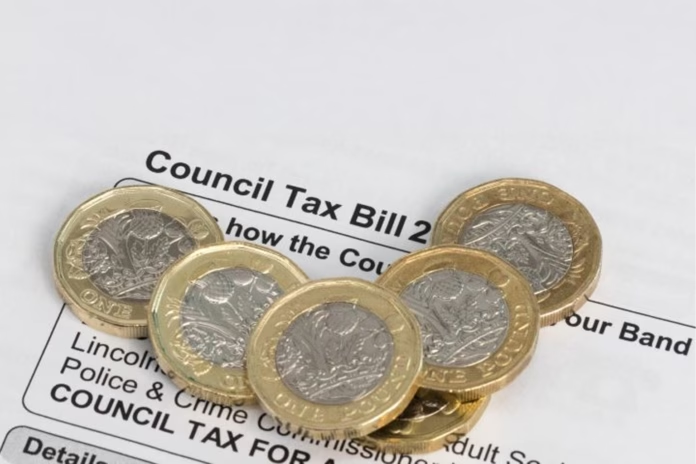Leading local government figures have welcomed a “good settlement”, while expressing concern over the ongoing impact of inflation and the suggestion that councils should use reserves to maintain services.
A £59.5bn funding package for councils has been offered by the government in the provisional settlement, representing a 9% year-on-year increase. The one-year agreement also includes a minimum 3% increase in core spending power before any local decisions on council tax are taken.
The document from the Department for Levelling Up, Housing and Communities (DLUHC) follows from an Autumn Statement and finance policy statement that did not detail the return to austerity spending that many councils had feared.
The local government settlement also confirmed £2bn in additional grant funding for adult and children’s social care for 2023/24. However, the one-year nature of the settlement and the continuing delay to the Fair Funding Review disappointed many councils.
Stephen Houghton, chair of the Special Interest Group of Municipal Authorities (SIGOMA), said: “The settlement is better than the sector feared and the new funding will be gratefully received and put to good use. However, councils still face a tough future as inflation continues to bite and demand pressures increase.
“Council tax will do much of the heavy lifting, and council leaders face an impossible choice between increasing council tax on hard-pressed families during a cost-of-living crisis and potentially having to cut back on vital front-line services. Unfortunately, this settlement fails to provide certainty or financial security for councils.”
Chris Tambini, president of the Society of County Treasurers, described the announcement as a “good settlement for local government” following on from the Autumn Statement. “The sector should be pleased that for the first time for a number of years its message has been heard and acted upon in Westminster,” he said.
But Tambini, who is the director of corporate resources at Leicestershire County Council, added: “Despite the increase in funding, the sector will remain under severe financial pressure as a result of significant increases in cost and demand.”
The sector should be pleased that for the first time for a number of years its message has been heard and acted upon in Westminster.
Ministerial message
Of the provisional local government settlement, levelling up secretary Michael Gove said: “Local government plays an absolutely vital role in helping us to level up, support the most vulnerable and deliver key services that people rely on every single day.
“We recognise the pressures councils are facing right now and this spending boost will provide the support and funding local authorities need to continue delivering first-rate public services.”
In a written ministerial statement made in Parliament on 19 December, Gove added: “These proposals will provide councils with the support they need. It gives certainty, ensures stability, provides significant additional resources for social care, and maintains balance on council tax.”
Not a return to 2010
The settlement represents a 5.8% increase in provision for councils after inflation, according to the Institute for Fiscal Studies (IFS), however this does not reflect any increase in energy costs or imported foodstuffs. Furthermore, IFS analysis shows that council spending allocations remain 15-18% below 2010 numbers when accounting for cuts made in this time, inflation and population increases.
Core spending power has increased by 9.17% across all authority types, driven significantly by the extra monies for social care announced in the Autumn Statement. Social care grants have increased by 47% from £4.65bn in 2022/23 to £6.85bn in 2023/24 – taken together with an estimated additional £500m that would be raised from the Adult Social Care precept.
Dan Bates, a finance specialist at LG Improve, said: “Whilst undoubtedly some will point to increasing demand for social care, this settlement appears to provide a reasonably significant boost in respect of social care funding, and the distribution of additional funding by needs formulae will see more deprived areas receive additional funding.”
Underlying and existing pressures remain for councils and many still face significant challenges when setting their budgets and trying to protect services from cutbacks.
Underlying challenges
According to DLUHC, the most deprived areas of England will receive 17% more per household through this year’s settlement, though the IFS cast doubt if this would be offset by the increased income from business rates in more affluent areas.
James Jamieson, chairman of the Local Government Association (LGA), said: “The increase in local government core spending power next year, confirmed in today’s provisional settlement, will help councils deal with inflationary and other cost pressures they face.
“Underlying and existing pressures remain for councils and many still face significant challenges when setting their budgets and trying to protect services from cutbacks. Shire district councils – which provide vital services like planning and waste and recycling collection – will also see a lower core spending power increase next year, which is something the government should address in the final settlement.”
The County Councils Network (CCN) reported that 12 of its member councils will have core spending power (CSP) increases below the national average.
Carl Les, CCN finance spokesperson, said: “The increase in resources will go a significant way to easing the financial pressures facing councils next year, but CCN member councils still face very tough budget decisions next year.
“Moreover, achieving the maximum increase in CSP is reliant on councils raising council tax by 5%. Any council tax rise during the current cost of living crisis is a difficult choice but is one the majority of our councils will need to take to ensure they can maintain vital frontline services.”
Reservation on reserves
Reports from October showed that local authorities had boosted their revenue reserves by £6bn over the last two years. In an earlier written ministerial statement, following the finance policy statement, Gove stressed that the government had noted this increase.
He added: “We are encouraging local authorities to consider whether they can use their reserves to maintain services in the face of immediate inflationary pressures, taking account, of course, of the need to maintain appropriate levels of reserves to support councils’ financial sustainability and future investment.
However, according to Tambini: “The message to use reserves to maintain services in the settlement is cause for concern. This could come back to bite DLUHC and individual authorities as some councils are likely to build up a ‘cliff edge’ budget gap that that is just too big to address.
“It feels like the sector still have some lobbying work to do with Treasury and DLUHC, so they fully understand reserves.”
A consultation on the settlement will be open until 16 January 2023.
—————
FREE weekly newsletters
Subscribe to Room151 Newsletters
Room151 LinkedIn Community
Join here
Monthly Online Treasury Briefing
Sign up here with a .gov.uk email address
Room151 Webinars
Visit the Room151 channel












